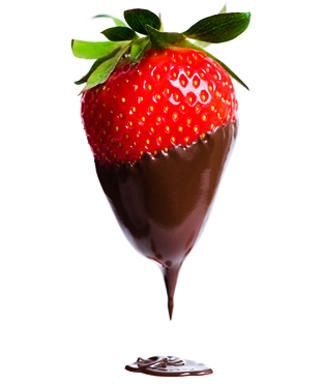 Every now and then, I come across a study that really blows my skirt up. Today is one of those days. Marilyn Monroe, eat your heart out.
Every now and then, I come across a study that really blows my skirt up. Today is one of those days. Marilyn Monroe, eat your heart out.
According to researchers at the University of Houston, there are two very effective words that can be used to stop cravings. When individuals said “I can’t eat that,” only 10% were able to stick to their healthy eating habits. On the other hand, when the phrase “I don’t eat that” was used, that number skyrocketed to 80%.
It’s the difference between “I can’t” and “I don’t” - and, according to Vanessa Patrick, PhD and co-author of the study:
Saying “I can’t” signals that you’re giving up something desirable. But saying “I don’t” gives you a sense of empowerment.
When I think of my own personal experience, saying “I can’t” or “I shouldn’t eat that” is almost like begging the other person to be an enabler. “Oh, but you deserve it” is the expected response. Saying “I don’t eat that” is much stronger - and much more authoritative. There’s no wiggle-room for enabling.
It’s a subtle but powerful difference - and I don’t think there’s an easier diet strategy out there. I love this study because it’s also an important reminder to choose our words carefully! Innocuous as they may seem, words have very real implications on our lives, our health and our waistlines.
Do you plan on making use of this tip? Are there any other words that you use or avoid? Let me know in the comments below!









awesome.. ill put it to practice, makes a lot of sense, maybe it will also work on other types of cravings…
JMD
I will be using this. I’m currently investigating a new diet lifestyle, and though it strays from the traditional Western diet, and has some restrictions (which I should call alternatives instead, speaking of better word choice), there will be some positive aspects I look forward to enjoying. Words are powerful. I’m an English teacher. I know this!
Hi Davey, I was wondering if you could provide the link for the study?
Thanks 🙂
Hi Davey!
Do you (or commenters) have suggestions about what to say when it’s a food I *do* eat but I don’t have the calories that day? I don’t want to say “I don’t eat brownies,” for instance, because it’s not true.
I also don’t want to say “I don’t *want to* eat that,” because who doesn’t want a flippin’ brownie? (I almost always do!)
Any ideas, anyone? What can I say instead of “I don’t [want to] eat that” that still makes it my choice?
Thanks,
Emily
3How about “Not right now, thank you”?
I always use “I don’t feel like eating -whatever-“. And then it’s like the more I think about it and all the hard work I’ve put in for the day, and it really helps cut my cravings. And then by the time I’m done thinking whatever it is is just kinda “meh”.
In addition (I just noticed this as I read this post) “I can’t” sort of takes it out of your power. As if there is something stopping you from eating it, but “I don’t” is because you chose not to. I don’t eat pork because I choose not to vs. I can’t eat pork because it is against my religion.
:]
WORDS.
-Abbie
I totally believe this study. I stopped eating fried foods because they upset my stomach. Now when I am out with friends some place and a plate of french fries (or some other fried food)appear, I always say “I don’t eat fried food” and 9 out of 10 times I won’t eat any!
Who knew there was actual science behind that!
The minute you deny yourself anything, whatever that may be (food, sex, drink) you want it all the more.
If you tell yourself you can have it but you choose not to it suddenly is less of an uphill battle.
Well I was about to take a 2nd bite of a BK Whopper and this popped up. So I tossed the bugger. Worked this time. I will try. But I’m such a food junkie 🙁
Ive found that standing in a shop looking At something to buy (often junk food) I’ll ask myself. Do you want that or do you need that? Often it’s I want that, do it goes back on the shelf.
how weird-i said the words-i dont eat that-when asked just yesterday-if i was coming over for pizza-just last night.
I will have to try this… after I eat all the sweets I just bought this weekend…over the period of a few weeks.